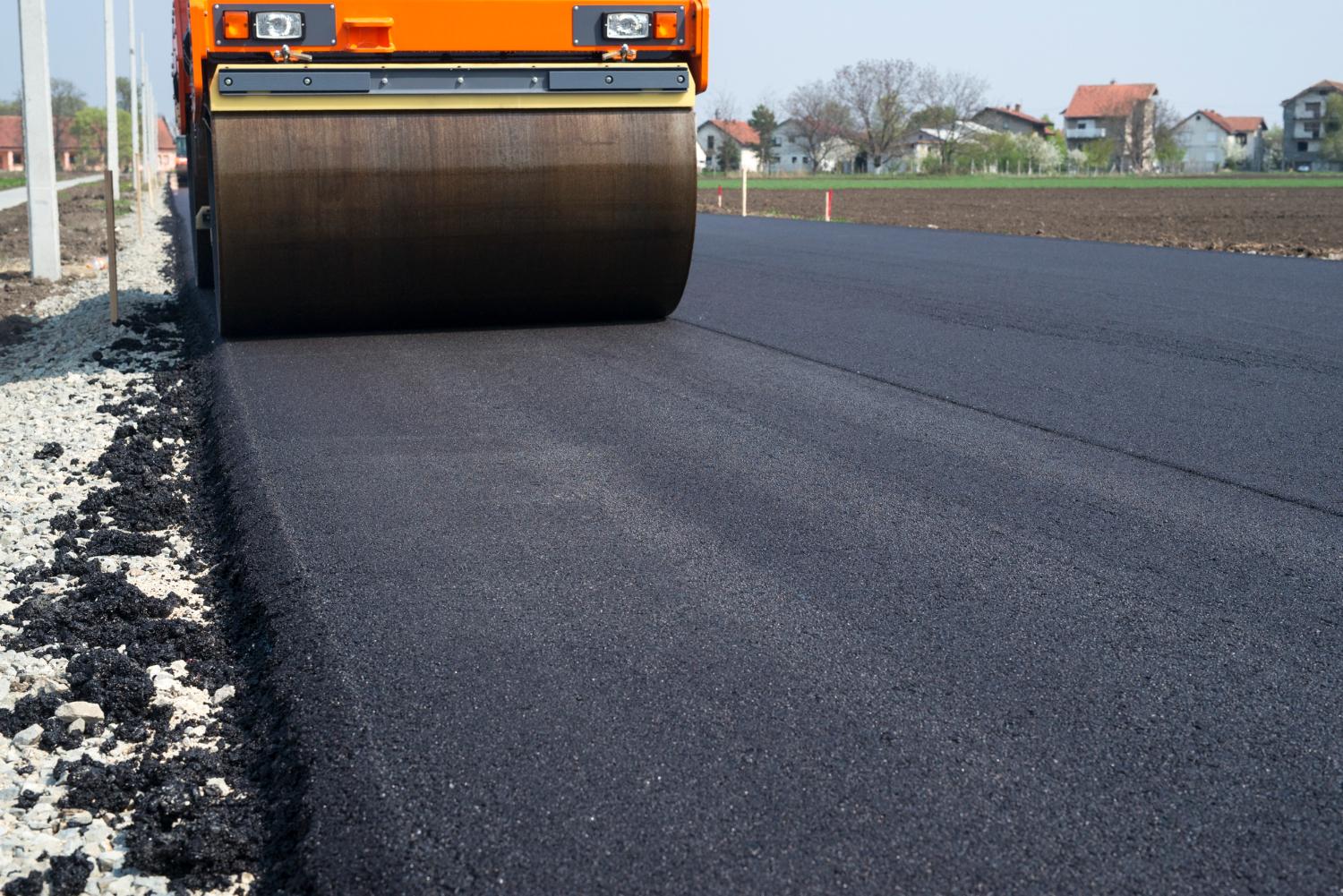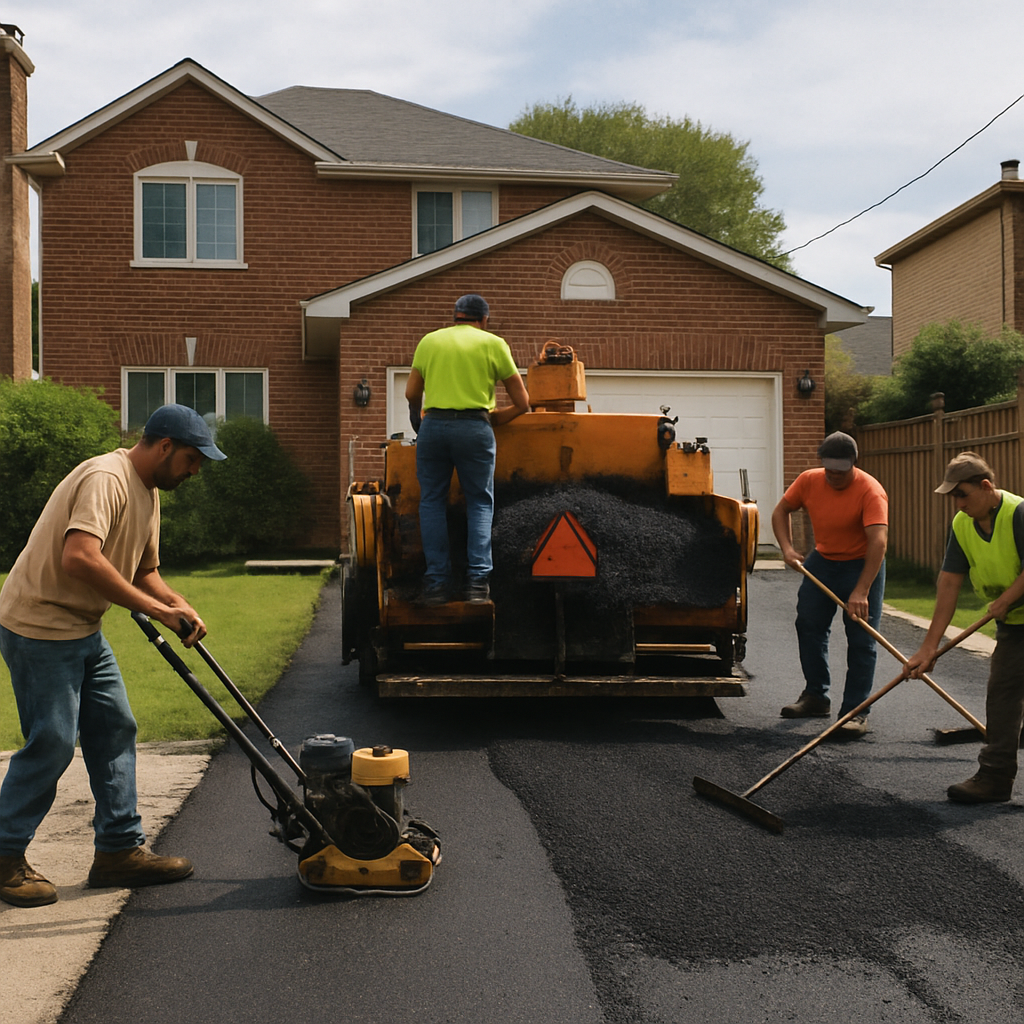Asphalt Repair or Full Replacement Choosing the Right Service for Your Driveway

When it comes to maintaining your driveway, the decision between asphalt repair and full replacement can be daunting. Cracks, potholes, and fading are common issues that homeowners face, and knowing whether to patch things up or start anew is crucial. This guide will walk you through the different options available, helping you make an informed decision that suits your needs and budget.
Asphalt is a popular material used for driveways due to its durability and cost-effectiveness. It is composed of aggregates (like sand, gravel, and crushed rock) mixed with bitumen, a sticky, black substance that binds everything together. When laid correctly, asphalt creates a smooth, resilient surface. The versatility of asphalt allows it to withstand various weather conditions, making it an ideal choice for different climates.
Additionally, asphalt is praised for its quick installation process. Unlike concrete, which can take several days to cure, asphalt driveways can be used just a few hours after installation. This makes asphalt a convenient option for homeowners who want minimal disruption to their daily routine. Moreover, its flexibility reduces the likelihood of cracking over time compared to more rigid materials.
Asphalt driveways are prone to certain issues over time. The most common include:
-
Cracks: These can form due to weather conditions, heavy loads, or even tree roots. Seasonal freeze-thaw cycles can exacerbate these cracks, leading to more significant damage if not addressed promptly.
-
Potholes: These are more severe than cracks and can damage vehicles if left untreated. Potholes often develop when water penetrates the surface and weakens the underlying base, making timely repair crucial.
-
Fading: Over time, exposure to the sun can cause the asphalt to lose its rich, black color. This fading not only affects curb appeal but can also signal the need for maintenance to protect the surface from further deterioration.
 Asphalt Repair Options
Asphalt Repair Options
If your driveway is showing signs of wear, you might not need a full replacement. Here are some repair options to consider:
Crack Filling and Sealing
This is the simplest form of repair. It involves filling cracks with a sealant to prevent water from seeping in and causing further damage. It's a quick and cost-effective solution for minor cracks. By sealing these cracks early, you can extend the life of your driveway and avoid more costly repairs down the line.
Crack filling and sealing not only protect against water infiltration but also prevent debris accumulation, which can further stress the asphalt. Regular sealing every few years can also enhance the driveway’s appearance, giving it a fresh look and improving your home's overall aesthetic appeal.
Pothole Patching
For potholes, a patching material can be applied to fill the hole and restore the surface. This method is effective for small to medium-sized potholes. Patching is a relatively straightforward process that involves cleaning the affected area, applying a tack coat, and then filling it with an asphalt mix.
Pothole patching can be a temporary fix or part of a longer-term maintenance plan. It is crucial to address potholes promptly to prevent them from expanding and causing more extensive damage. Regular inspections can help identify potential potholes early, allowing for timely intervention.
Resurfacing
Also known as overlaying, resurfacing involves adding a new layer of asphalt over the existing driveway. This is a good option if the surface is mostly intact but has some cosmetic issues. Resurfacing can refresh the appearance of your driveway and provide a durable new surface without the need for full excavation.
The process of resurfacing typically involves cleaning the existing surface, repairing any minor defects, and then applying a new layer of asphalt. This method can add years to the life of your driveway, offering a cost-effective alternative to full replacement when structural integrity is not compromised.
When to Consider Full Replacement
Sometimes, repairs are not enough. Here are scenarios where a full replacement might be necessary:
Extensive Damage
If more than 25-30% of your driveway is damaged, repairs might not be sufficient. Large cracks, numerous potholes, and deep structural issues often require a complete overhaul. In such cases, the cost of continuous repairs can exceed the investment needed for a new driveway.
Extensive damage often indicates underlying problems that patching cannot fix. A full replacement allows for a thorough inspection and rebuilding of the foundation, ensuring a robust and long-lasting surface that can withstand future stresses.
Foundation Problems
If the foundation beneath your driveway is compromised, a full replacement is necessary. Repairing the surface without addressing foundational issues will only lead to more problems down the road. Symptoms of foundation problems include widespread cracking, sinking, or heaving of the driveway surface.
Addressing foundation issues during a full replacement involves excavating the existing material, assessing the sub-base, and reinforcing it if needed. This ensures that the new driveway is built on a solid foundation, minimizing the risk of future damage and prolonging its lifespan.
Age of the Driveway
Asphalt driveways typically last 15-20 years. If your driveway is nearing the end of its lifespan, replacing it might be more cost-effective than constant repairs. Aging driveways often suffer from cumulative damage that repairs cannot adequately address, making replacement the more viable option.
Replacing an old driveway provides an opportunity to upgrade materials, improve drainage, and incorporate modern design elements. Investing in a new driveway can enhance your property's curb appeal and increase its overall value, making it a worthwhile long-term investment.
 Cost Considerations
Cost Considerations
Cost of Repairs
Repairs are generally less expensive than full replacements. Crack filling and sealing can cost a few hundred dollars, while resurfacing might run into the thousands, depending on the size of your driveway. It's essential to weigh the cost of repairs against their longevity and the potential need for future interventions.
When budgeting for repairs, consider the frequency of past issues and whether repairs will address the root cause or merely serve as temporary fixes. Investing in preventive maintenance can save money over time by reducing the likelihood of significant repairs.
Cost of Full Replacement
A full replacement is more costly, with prices ranging from $5,000 to $10,000 or more, depending on the driveway's size and any additional work needed for the foundation. This upfront expense can be daunting, but it offers a fresh start with a new, durable surface.
When considering a full replacement, factor in the potential for customization and upgrades, such as improved drainage systems or decorative finishes. These enhancements can add value to your property and provide a return on investment by increasing curb appeal and functionality.
Long-term Savings
While the upfront cost of a full replacement is higher, it can be more economical in the long run. A new driveway will require fewer repairs and less maintenance, saving you money over time. Additionally, new driveways often come with warranties, providing peace of mind and protection against unforeseen issues.
Evaluating long-term savings involves comparing the cumulative costs of ongoing repairs versus the one-time investment of a replacement. Consider the lifespan of a new driveway and how it aligns with your future plans for the property, ensuring that your decision supports your long-term financial goals.
Making the Right Decision
Assess the Condition
Start by assessing the current state of your driveway. Take note of the number and size of cracks, potholes, and any signs of foundation issues. A thorough inspection can help determine the extent of damage and whether repairs or replacement is the best course of action.
Documenting the condition of your driveway can also assist in obtaining accurate quotes from contractors. Consider taking photographs and making detailed notes about specific areas of concern, which can aid professionals in providing precise assessments and recommendations.
Budget and Long-term Plans
Consider your budget and how long you plan to stay in your home. If you're planning to move soon, repairs might be the best option. If you plan to stay for many years, investing in a full replacement could be wise. Long-term plans should also take into account potential future needs, such as increased parking space or improved aesthetics.
Balancing your budget with your long-term plans ensures that your decision aligns with both current financial constraints and future aspirations. Weigh the benefits of immediate savings from repairs against the potential value addition from a new driveway, considering how each option fits into your overall property strategy.
Consult a Professional
Finally, consult with a professional contractor. They can provide an expert opinion and detailed estimate, helping you weigh the pros and cons of each option. Professionals can identify issues that may not be immediately apparent and suggest solutions tailored to your specific situation.
Consulting a professional also allows you to explore various materials and techniques that may be available, offering opportunities for customization and innovation. A reputable contractor can guide you through the decision-making process, ensuring that you choose the best option for your needs and circumstances.
Conclusion
Choosing between asphalt repair service near you and full asphalt driveway replacement service depends on various factors, including the condition of your driveway, your budget, and your long-term plans. By understanding the different options and considering the costs involved, you can make an informed decision that will keep your driveway in great shape for years to come.
In the end, whether you choose to repair or replace, maintaining your driveway is essential to ensuring its longevity and appearance. With the right care, your asphalt driveway can remain a valuable asset to your property. Regular maintenance and timely interventions will not only enhance your property's curb appeal but also contribute to its overall value, making your investment in asphalt worthwhile.





